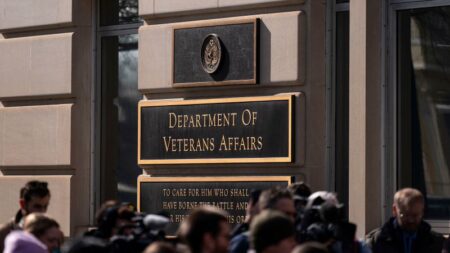The US Department of Justice (DoJ) and the Federal Bureau of Investigation (FBI) have recently concluded a thorough investigation regarding the infamous case surrounding Jeffrey Epstein, the disgraced financier and convicted sex offender. Their findings have surprised many, as they determined that Epstein did not maintain a so-called “client list” that could potentially implicate high-profile associates in illicit activities. Moreover, the investigation affirmed the official position that Epstein had taken his own life, thereby contradicting numerous conspiracy theories that have circulated since his death.
Epstein’s case has remained a subject of intense scrutiny and intrigue, particularly following his mysterious death in a New York prison cell in August 2019 while awaiting trial for sex trafficking charges. This event raised several questions concerning whether he was capable of exposing powerful individuals and whether he was murdered to prevent this from happening. Allegations swirled around high-profile figures, including politicians, celebrities, and business moguls, leading to widespread speculation.
During his campaign for the presidency in 2020, Donald Trump announced intentions to release files pertaining to Epstein’s dealings. However, since resuming office in January, there has been mounting dissatisfaction among some supporters regarding how the administration has managed disclosures related to the Epstein case. Prominent among these is a public feud that erupted earlier this year between Trump and tech entrepreneur Elon Musk, in which Musk claimed that Trump’s name may be linked to unreleased governmental records connected to Epstein.
The DOJ and FBI’s recent findings were encapsulated in a two-page memo indicating there was no evidence supporting Epstein’s alleged blackmailing of powerful associates or the existence of any incriminating list of clients. Investigators provided video evidence that they argue reaffirms the medical examiner’s conclusion that Epstein died by suicide, further derailing conspiracy theories suggesting foul play in his death. The memo also stipulates that no sufficient evidence was found that could warrant an investigation into uncharged individuals linked to Epstein.
Individuals previously skeptical about the official narrative surrounding Epstein’s death, such as FBI director Kash Patel and his deputy Dan Bongino, have since shifted their stance, acknowledging that Epstein’s demise was indeed a case of suicide. However, criticisms emerged from some factions within Trump’s support base, who decried the investigative memo as a “shameful coverup” intended to shield powerful elites from scrutiny and accountability.
The debate intensified when Trump’s former attorney general, Pam Bondi, expressed in a February interview that the Department of Justice was in the process of reviewing a list containing Epstein’s clients. This statement did not align with the conclusion drawn in the recent findings, leading to accusations of misinformation and mismanagement of disclosures. The White House later clarified that Bondi was referencing an overarching review of all files related to Epstein rather than a specific client list.
The ongoing discourse surrounding the Epstein case reveals the intricacies of public perception and the power dynamics in play. Conservative figures expressed their discontent, arguing that the lack of substantial revelations did not meet the expectations of the American people who had been eagerly seeking justice and transparency. Conservative lawmaker Anna Paulina Luna’s comments encapsulate this sentiment, voicing a shared sense of disappointment on platforms like X (formerly Twitter).
Recent statements by Bondi, alleging withholding of critical evidence by federal investigators, and claims regarding extensive video footage involving Epstein raised further questions about transparency in the investigation. Despite this, the White House maintained that some documents had been withheld due to their graphic nature, reflecting the sensitive nature surrounding Epstein’s crimes.
The discourse remains volatile, and questions linger regarding the full extent of Epstein’s network and the involvement of others. As the investigation continues to unfold, the fight for justice and accountability persists, intertwined with the complexities of political narratives and public trust in governmental institutions.











